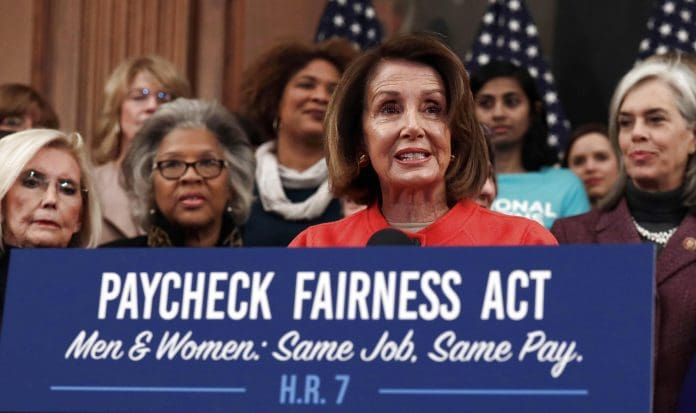The Paycheck Fairness Act stumbled in the Senate on Tuesday. Projected to address the gender pay gap, it ran into stiff Republican opposition. It was touted as a measure that would fortify the Equal Pay Act of 1963. It would have done away with pay gaps due to gender and other considerations and allowed women to challenge discrimination based on pay.
Outside, the bill has been opposed by corporate organizations. If passed, it would have been tough for employers from paying women workers less than their men counterparts.
The final vote was 49-50 on the Paycheck Fairness Act, with the Republicans opposing amidst support from the Democrats. 60 votes at least were required to bring an end to the filibuster while taking the bill to a vote on the floor.
The house had passed the legislation 217-210 back in April. The voting had even then been purely along political lines. This has been the trend all along and several such bills had died a quiet death in the Senate after passing through the House.
The Paycheck Fairness Act Was Supposed To Restore Parity
The National Women’s Law Center says that women on average earn 82 cents against each dollar made by their male counterparts. The disparity gets worse in the case of colored women. Native Americans make only 60 cents, Latinas 55 cents, and black 63 cents for each dollar earned by white males.
Women with equal qualifications and experience make much less than their male counterparts, especially if they are white. There have been efforts to address this issue for years but the Republicans have stopped it repeatedly.
Paycheck Fairness Act Would Require A Change In Disclosure Norms
A change in the law would require that employers open up about the pay scales. It would also make it compulsory to prove that any disparity is due to factors other than race or gender. It would have toughened laws against companies and owners found discriminating based on them
but there has been stiff opposition from the US Chamber of Commerce. They feel that any legislation would hamper the ability of employers to compensate workers centered on other factors including education, experience, and location. These factors can lead to wage disparity but are not linked to gender or race.






